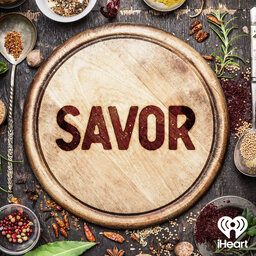Ginger Snaps Back
This warming spice is an ingredient in both sweet and savory dishes the world over. Anney and Lauren dig up the history and science of ginger.
Learn more about your ad-choices at https://www.iheartpodcastnetwork.com
In 1 playlist(s)
Savor
Savor digs into how people live and how they eat – and why. Hosts Anney Reese and Lauren Vogelbaum i…Social links
Follow podcast
Recent clips

Oysters and Activism: The Thomas and George Downing Episode
38:18

Savor Gives You a Raspberry
36:28

Seeing Red Beans and Rice
35:46
 Savor
Savor